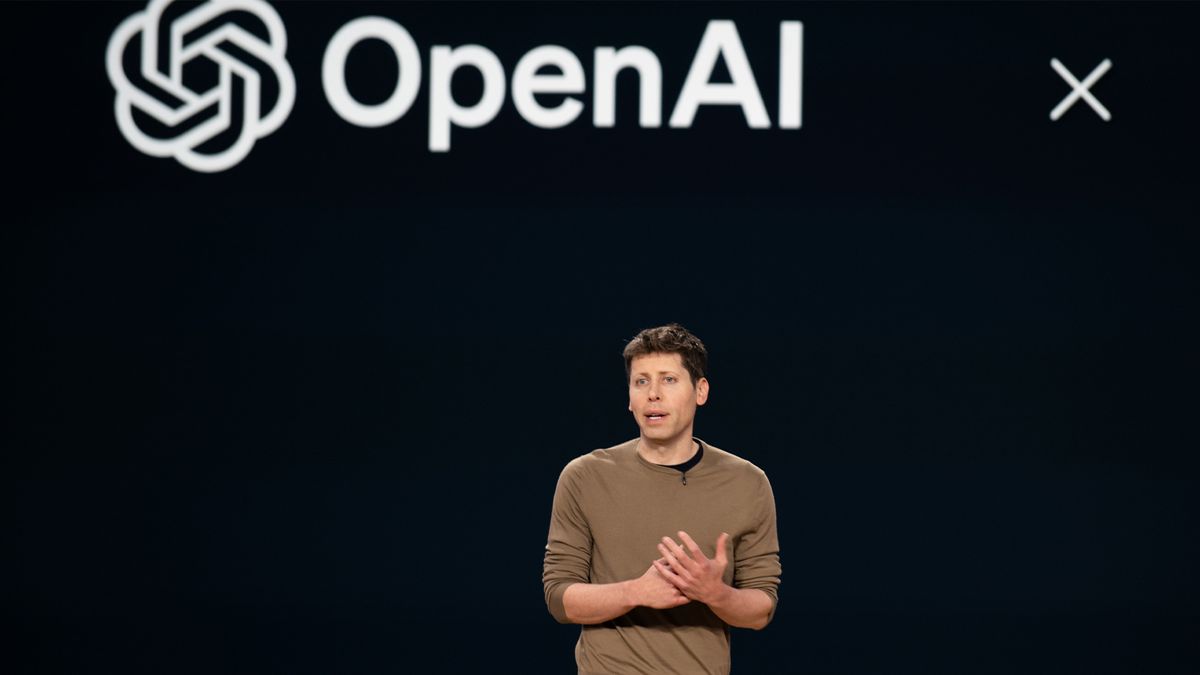OpenAI could be plotting a foray into the world of AI agents – here’s what we know so far

OpenAI could be set to release its own AI agents in January of next year, marking the latest of the big tech players to capitalize on the growing industry trend.
Reports from Bloomberg suggest the plans were discussed at a staff meeting this week.
While OpenAI has yet to confirm the plans, and is yet to respond to a request for comment from ITPro, CEO Sam Altman said at a developer conference that next year is when “agents will work”, showing off a short demo of a voice assistant ordering fruit via a phone call.
Additionally, last month OpenAI chief product officer Kevin Weil told the Financial Times that his company’s aim was to make it possible to interact with AI in all the same ways you would a human.
“These more agentic systems are going to become possible, and it is why I think 2025 is gonna be the year that agentic systems finally hit the mainstream,” Weil told the publication.
So it’s no surprise that OpenAI is working on agents — after all, so too are its rivals. But the latest reports suggest that the company’s technology is near enough ready to launch, given the January release prediction.
Alongside the launch date, the report suggested the OpenAI agent is code-named “Operator“, and that it will be able to take over tasks to run them independently, finally delivering on the promise of autonomous support that those developing the latest round of large language models have promised.
OpenAI faces stiff competition in the agents space
OpenAI won’t quite be the trailblazer in this part of the evolutionary path of AI, with other tech companies having already rolled out early versions of their own agentic AI services.
Microsoft unveiled new agents for Copilot last month, for example. These are designed to work without further training, helping to automate tasks such as triaging client emails, managing expenses, and so on. The service is expected to be released via a public preview later at its Ignite conference next week.
“Agents are very focused on augmenting business processes and workflows, teams and departments,” Charles Lamanna, CVP for Business & Industry Copilot at Microsoft, said at the time. “They’re able to work on behalf of a system as opposed to a person, work asynchronously, or even autonomously to complete tasks.”
Similarly, in September Salesforce launched its Agentforce service, allowing companies to make customizable AI agents to support business functions, including automating customer service interactions. They were made generally available in October.
“Agentforce goes beyond chatbots and copilots, using advanced reasoning abilities to make decisions and take action, like resolving customer cases, qualifying sales leads, and optimizing marketing campaigns,” the company said at the time.
“Agentforce doesn’t depend on human engagement to get work done; these agents can be triggered by changes in data, business rules, pre-built automations, or signals via API calls from other systems.”
Earlier this month, reports suggested Google was working on its own version of AI agent service, dubbed ‘Project Jarvis’, which would automate email management, research and appointment scheduling, among other tasks.
If such reports prove correct, Google plans to demonstrate the tool in December alongside an update to its Gemini large language model (LLM).
Google Cloud unveiled its own version of AI agents under the Vertex brand earlier this year, and has been keen to emphasize the productivity gains and return on investment (ROI) for users thus far.
Though tech companies clearly see AI agents as the next big thing, early versions will be limited. Anthropic, which is working on its own autonomous agents service, admitted the tool remains “experimental… at times cumbersome and error-prone”.
Source link

